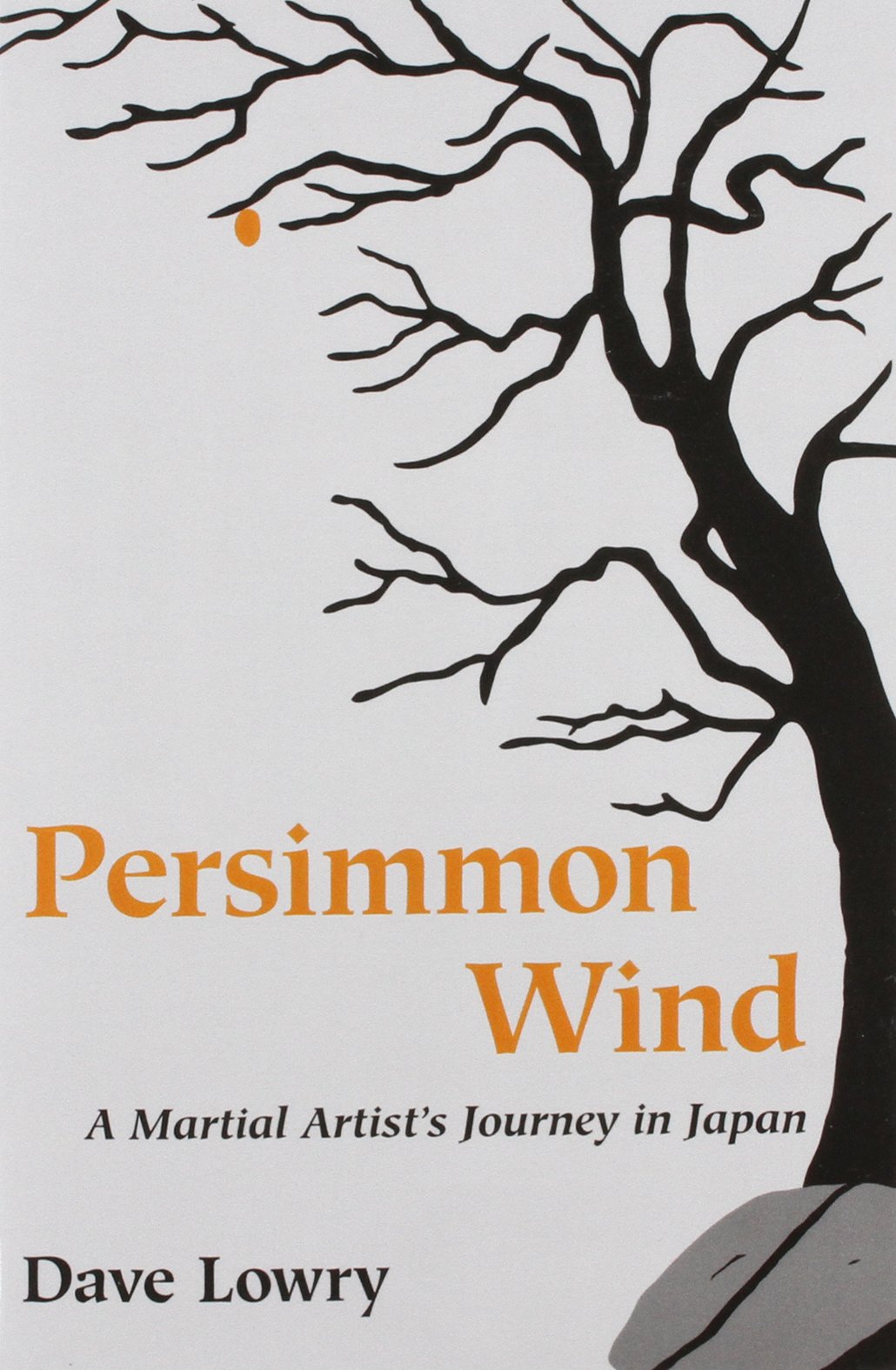Persimmon Wind: A Martial Artist's Journey in Japan, is the first book I have read by Dave Lowry. It is not, however, the first time I have heard about this book. Anyone interested in koryu bujutsu will most likely know of Koryu.com. This website is a great place to find out about classical Japanese martial arts for the Western practitioner. It was here that I stumbled upon such authors as Dave Lowry and Ellis Amdur. It was the promotion of Persimmon Wind on the Koryu.com website that encouraged me to buy the ebook. What I didn't realise was that this book is the sequel to another book, Autumn Lightning: An Education of an American Samurai. So I suspect my perception of Persimmon Wind may change after reading Dave Lowry's prequel. For the time being I will give you my thoughts on the book as a stand-alone piece.
The book is a mix of Dave's feelings and thoughts as he travels Japan entwined with stories of Yagyu Shinkage Ryu history and other idiosyncrasies of Japanese culture. The book tells of Dave's journey to Japan to continue training in Swordsmanship by reuniting with his sensei. It is split into chapters with names such as, Glimpses of the Warrior, Obligations, and even Noodles and the Art of the Slurp. I found Dave's writing style a combination of direct story telling in some chapters while at other times he got quite poetic and esoteric. I'm not sure what I was going to expect from the book but I felt he didn't really dwell on the actual training of Yagyu Shinkage Ryu. He would mention it in passing while moving onto another historical account or Japanese cultural quirk. Perhaps this was his aim; to give the reader a feeling of living in Japan as a foreigner and give an introduction to some ways of the people there.
What did I enjoy the most?
His personal accounts were great to read about. The realisation that his Japanese was deemed, rather old-fashioned. The fact that a young Japanese boy knew more about baseball than he did (as an American), even a story of how the locals discovered that this crazy American wore old-style, traditional Japanese underwear!
I also enjoyed his telling of the relationship between himself and his sensei, including his sensei's family and neighbours. Dave managed to capture the characters of the people with simple descriptions. For a practitioner of a koryu bujutsu Dave emphasised for me how important it is to the Japanese that they know the roots of their art. This especially reminded me that the elements of Shinto and Buddhism are part and parcel of studying the art as much as swinging a sword around. Dave visiting the grave of the founder of Yagyu Shinkage Ryu and his sensei's brother highlighted the importance of such acts and gave me an understanding into the importance of my own Ryu's ancestry and why Threadgill sensei has traveled to Japan to visit graves and living members of the Shindo Yoshin Ryu line. Dave successfully tells how deep and rich Japanese history is and that these koryu both he, I and many other Westerners practice are very, very old and entwined within the fabric of Japanese culture.
What did I not enjoy?
At times Dave's story-telling feels long-winded and a little boring. A few times he is describing a visit to a certain place in Japan and I am intrigued until he slips into a retelling of Japanese history or similar which carries on for quite a while before he gets back to the point at hand. His obsession with traditional Japanese culture is sometimes a bit too much. Does a Westerner really have to wear archaic Japanese underwear or sleep on a futon in his American home to be fully immersed in his koryu training?
Overall Impressions?
The book gave me insights into rural Japan that I may not get the opportunity to experience myself. This in itself is valuable but Dave also managed to convey the richness of koryu study and how it is an ongoing pursuit that goes beyond clashing bokken together. This book is not for everyone but if you practice the classical martial arts (and I know many of my readers do) then I recommend this book (maybe after reading Autumn Lightning).

No comments:
Post a Comment